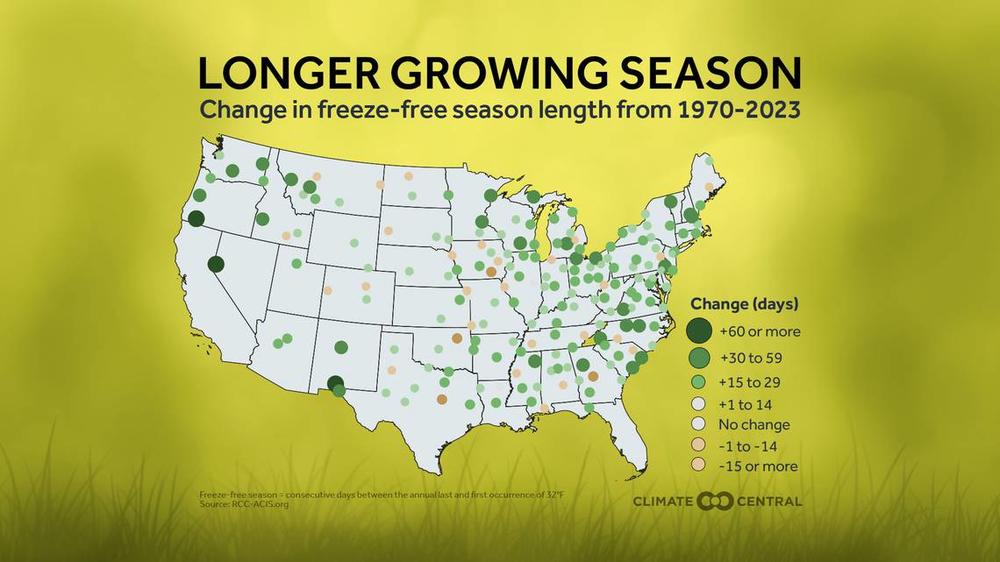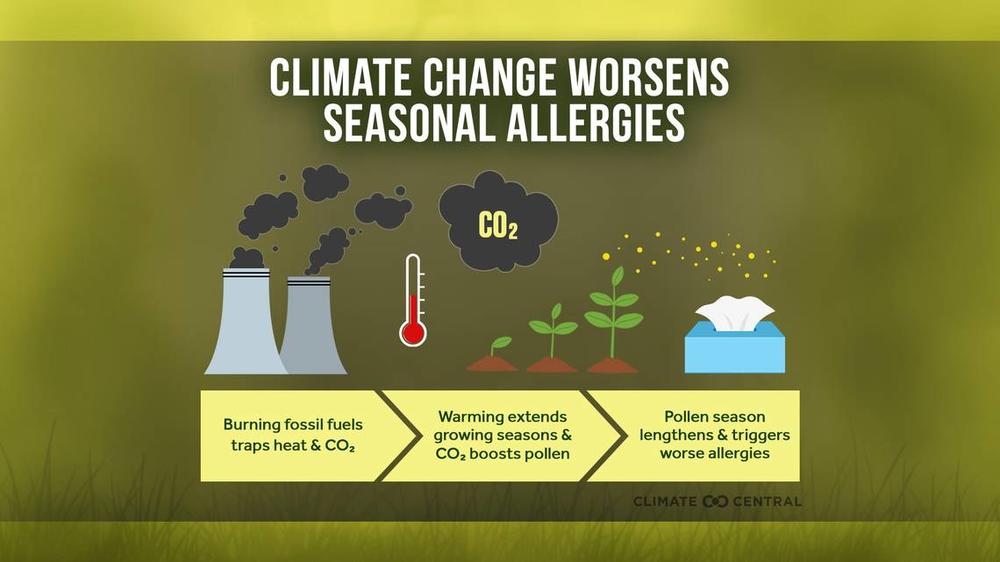
Section Branding
Header Content
Study finds most U.S. cities have longer allergy, pollen season. Is Macon one of them?
Primary Content

Spring has sprung. And so have your allergies?
Well, it’s pretty common.
If you’re experiencing a sore throat, itchy eyes or runny nose, you probably have “hay fever,” or what we commonly refer to as “allergies.”
But if you’re a Maconite, we have some good news for you: Macon was one of the few cities that isn’t seeing a longer allergy season.
A new study by Climate Central found that increasingly warmer temperatures make more pollen and ultimately, create a worse allergy season. Here are more key points:
-
The study evaluated 197 cities in the U.S. and revealed that a warming climate results in more freeze-free days each year, which gives plants more time to grow and release allergy-inducing pollen.
-
Climate Central reported that since 1970, allergy season lengthened by at least 19 days in 83% (164) of 197 U.S. cities. Some cities even saw a 60+ day growth in allergy season.
But Macon, as well as a few other cities, did not see their allergy season lengthen. Rather, according to the study, the allergy season actually shortened.
Although Atlanta saw the season lengthen by 60 days or more, Macon and parts of Middle Georgia saw the season shortened by at least 15 days.
Why are many cities seeing longer allergy seasons? According to the study, there can be a number of reasons for this, including burning fossil fuels that trap heat and CO2.

The heat and CO2 then extends the growing season and boosts pollen counts in the environment. And of course, this causes allergy season and all symptoms to worsen.
Currently in Macon, the pollen count is high and will be fairly high until mid April. In comparison, Atlanta is experiencing extremely high pollen counts.
This story comes to GPB through a reporting partnership with The Telegraph.


